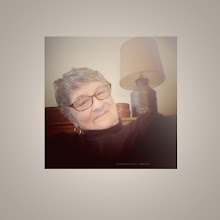
Years ago a famous photographer (one I admire) called to ask if he could start using sepia in his work since he liked my use of sepia. "Of course, " I said, "Go for it."
The reason I am relating this situation is because I was impressed. He was respecting me and my work. He was being considerate and professional. We knew each other, we competed, and he was, and is, an honorable person. He taught me a valuable lesson.
Suggestion: Remember to ask before emulating a friend's work, or style.
Asking first is the ethical and responsible thing to do. It doesn't matter if the technique, setup, style or whatever is covered in a book. Instead, be inspired by the work of others, then work, shoot and develop your own style--be different whether playing with photography, drawing, sculpting, crafting and painting; or being serious about the art, craft or skill. To take info from someone and use it without giving them credit, is unforgivable. Ask, and the answer will most likely be "yes." If the answer is "no," then you can to go in a different direction saving yourself a ton of time and aggravation. Also, be advised: you can never be as good as the person you copy. They are unique and have worked long and hard to be where they are.
Remember: Ignorance of the rules is no excuse.
After reading a book from the library on photography, which changed my life, I wrote the author. He sent me a copy of his book (then out of print and stored in his attic). After receiving a couple of awards, I sent him copies of the winning photographs and thanked him for his valuable contribution to my work and my life.
Do not underestimate how much you have been given. You may have received much more information and support than you realize, i.e. books, titles and quotations, settings, equipment with settings included, observations, tips and helpful suggestions, etc.
Giving credit to those people who help you along the way is the thing to do. No one succeeds without help from a variety of sources.
The reason I am relating this situation is because I was impressed. He was respecting me and my work. He was being considerate and professional. We knew each other, we competed, and he was, and is, an honorable person. He taught me a valuable lesson.
Suggestion: Remember to ask before emulating a friend's work, or style.
Asking first is the ethical and responsible thing to do. It doesn't matter if the technique, setup, style or whatever is covered in a book. Instead, be inspired by the work of others, then work, shoot and develop your own style--be different whether playing with photography, drawing, sculpting, crafting and painting; or being serious about the art, craft or skill. To take info from someone and use it without giving them credit, is unforgivable. Ask, and the answer will most likely be "yes." If the answer is "no," then you can to go in a different direction saving yourself a ton of time and aggravation. Also, be advised: you can never be as good as the person you copy. They are unique and have worked long and hard to be where they are.
Remember: Ignorance of the rules is no excuse.
After reading a book from the library on photography, which changed my life, I wrote the author. He sent me a copy of his book (then out of print and stored in his attic). After receiving a couple of awards, I sent him copies of the winning photographs and thanked him for his valuable contribution to my work and my life.
Do not underestimate how much you have been given. You may have received much more information and support than you realize, i.e. books, titles and quotations, settings, equipment with settings included, observations, tips and helpful suggestions, etc.
Giving credit to those people who help you along the way is the thing to do. No one succeeds without help from a variety of sources.








3 comments:
I like the article..well done.
Bob
Very good post and so true. Apprectiate each hand up and follow your own heart and unique path for success in the creative world.
HJello Elisabeth. I enjoyed this article very much and agree with it. I've seen people steal other people's ideas and then take the credit. It's shameful. I've even had it done to me.
Another point, in concert with yours, is that if I worked with an actor who accomplished something remarkable in a scene, and it was something I didn't think I knew how to do, I would ask him how he got there. Listening to his explanation taught me what was possible. DB
Post a Comment